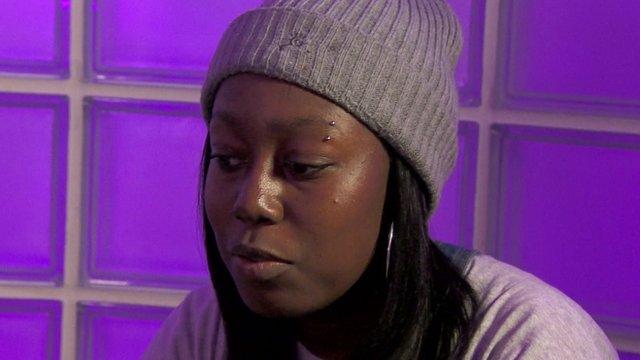Avoid criminalising children for minor offences, say MPs
- Published

"Experimental behaviour" such as sexting should not automatically be criminalised, the report says
Crime-recording rules should be changed to avoid criminalising children for "trivial misbehaviour", MPs have said.
Police should have more flexibility in the way they responded to low-level misdemeanours, the All-Party Parliamentary Group for Children said.
Fighting or sexting between teenagers should not necessarily always be recorded as offences, says the report., external
But Policing Minister Mike Penning said victims should "have confidence they will be taken seriously".
Minor offences by teenagers often result in "out-of-court disposals", where cases do not go to court but can become part of the individual's criminal record, says the report.
These records can be disclosed during background checks by young people's future employers "potentially limiting their future educational and career options", the report adds.
It says for "experimental behaviour" such as consensual sexting between young people of similar ages, police should be able to take the issue seriously, without it forming part of their record.
"Within current crime-recording standards, there is an expectation that every crime will have an outcome," it says.
"There are concerns that these standards mean that police officers are only able to record the incident as having 'no further action' or to record an outcome that results in the young person having a long-term criminal record or being placed inappropriately on a crime database."
Earlier this year, a 14-year-old was added to a police database after sending a naked image of himself to a female classmate.
The incident was recorded as a crime of making and distributing an indecent image.
He was not arrested or charged, but his details could be stored for 10 years.
At the time, the Criminal Bar Association said the case highlighted the dangers of needlessly criminalising children.
The report urges the Home Office to set up a new category for "low-level crime-related behaviour".
"In cases such as these, police should have the discretion to refer the child to another agency for support: their school, social services or counselling, for example, without it forming a permanent part of the record held against the name and undermining their future," said Baroness Massey, who co-chairs the group.
'Counter-productive'
Anna Feuchtwang, chief executive of the National Children's Bureau, said resorting to criminal sanctions for childhood behaviours was "often a waste of police time and counter-productive".
"It is time to rethink how the police respond to those children whose behaviour is often related to their vulnerabilities and need for support," she said.
But the government said accurate recording of crimes reported to the police was crucial.
"It is essential victims have confidence they will be taken seriously and their crime will be dealt with properly," said Mr Penning.
"Even seemingly minor offences can involve significant harm to the victim, or be part of a long-running pattern of victimisation.
"If a member of the public reports any violent incident, the police must record it as such.
"Police officers can and should, however, exercise their discretion in the action they take once a crime has been reported."
- Published15 June 2015

- Published16 October 2013
